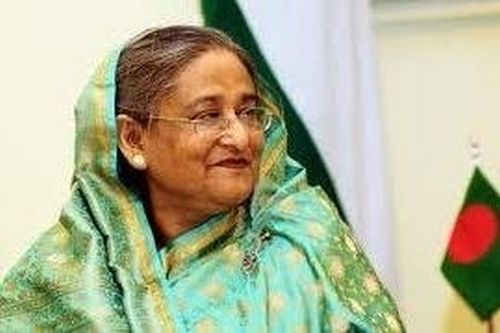Seoul: US Defence Secretary Lloyd Austin said Thursday that China’s pursuit of hypersonic weapons “increases tensions in the region” and vowed the U.S. would maintain its capability to deter potential threats posed by China.
Austin made the remarks in Seoul following annual security talks with his South Korean counterpart that focused on challenges from China and North Korea and other issues facing the allies.
“We have concerns about the military capabilities that the PRC continues to pursue, and the pursuit of those capabilities increases tensions in the region,” Austin said while discussing China’s latest hypersonic weapons test in July and using the abbreviation for the People’s Republic of China, the country’s official name.
“It just underscores why we consider the PRC to be our pacing challenge,” said Austin, referring to how China’s advancing military capabilities raise threats to U.S. defense strategies.
“We’ll continue to maintain the capabilities to defend and deter against a range of potential threats from the PRC to ourselves and to our allies,” he said.
China’s growing military muscle and its drive to end American predominance in Asia has triggered unease in Washington. The Chinese push was highlighted by its July test of a hypersonic weapon capable of partially orbiting the Earth before reentering the atmosphere and gliding on a maneuverable path to its target. Experts say the weapons system is clearly designed with a purpose of evading U.S. missile defences, although China insisted it was testing a reusable space vehicle, not a missile.
Last month, Gen. Mark Milley, chairman of the Joint Chiefs of Staff, said the U.S. is also working on hypersonic weapons. But there is concern in Washington that it is lagging behind China and Russia in pursuing these types of weapons. Russia said Monday its navy had successfully tested a prospective hypersonic cruise missile in the latest launch of the weapons system.
Hypersonic weapons, which fly at speeds in excess of Mach 5, or five times the speed of sound, could potentially pose crucial challenges to missile defense systems because of their speed and maneuverability. But some experts argue that hypersonic weapons would add little to America’s ability to deter war and worry that they could trigger a new, destabilizing arms race.
On North Korea, Austin said he and South Korean Defense Minister Suh Wook discussed a wide range of topics including bilateral unity in the face of the threat from the North. The two agreed that North Korea’s advancement of its missile and other weapons programs “is increasingly destabilizing for regional security,” Austin said.
The U.S. and South Korea remain committed to a diplomatic approach to North Korea, he added.
Suh said the allies share an understanding that “diplomacy and dialogue based on previous commitments between South and North Korea and between North Korea and the United States is essential for achieving permanent peace on the Korean Peninsula.” Despite severe pandemic-related economic hardships, North Korea has continuously rebuffed US offers to resume talks, saying Washington must first abandon its hostility toward the North. The Biden administration maintains that international sanctions on North Korea will stay in place unless the country takes concrete steps toward denuclearization.
Earlier this week, the Pentagon released the results of a global posture review that directs additional cooperation with allies and partners to deter “potential Chinese military aggression and threats from North Korea.” The review also informed Austin’s approval of the permanent stationing of a previously rotational attack helicopter squadron and artillery division headquarters in South Korea.







